The book in Arabic "Quotes about the history of the Abkhazians in the Middle East" by the researcher and historian Adnan Kabartay (Khapov) tells about who the descendants of the Abkhazian compatriots became in the Middle East.
Amra Amichba
The book "Quotes about the history of the Abkhazians in the Middle East", published in Syria with a circulation of 500 copies, tells about several dozen significant figures of Abkhazian origin who lived at different times in the countries of the Middle East. The author of the book, Adnan Kabartay (Khapov), is a historian, retired lieutenant general of aviation and himself a descendant of Caucasian settlers.
There are many famous names in the book, he assures.
"It is difficult to focus on listing names because of their large number; these are personalities from the time of the last era of the Circassian sultans and the times of the Ottoman Empire to the present day. Their positions range from sultans to ministers in the Ottoman Empire, they are also ministers, army commanders, generals, pashas, writers, historians, poets, journalists, artists, playwrights, intelligentsia, military personnel of the land, sea and air forces. Separate books could be devoted to most of them. I think that they can all be the pride for Abkhazians from generation to generation," the historian told the WAC information portal.
Rare details
The book also provides information about mothers, wives of sultans, ministers, military leaders, Ottoman pashas - women of Abkhazian origin.
"So, for example, the Sultan of the Ottoman Empire Abdul-Hamid II (the last sovereign ruler of the Ottoman Empire, ruled in 1876-1909 - ed.) had Abkhazian wives. The name of one of them was Mrs. Nazik Ada. She was a princess of Abkhazian origin, her father was Prince Arzkan bey Tsanaba, her mother was Princess Asmaa Kolyaj. The Sultan's marriage to the Abkhazian princess lasted from 1863 until her death on April 11, 1895. Abdul-Hamid married her after he saw her in the palace of his sister Jamila Sultan. This was on the eve of his accession to the throne in Constantinople (now Istanbul - ed.). Five years later, their only daughter, Alaviya Sultan, was born. The girl died at the age of seven as a result of a tragic fire, this incident was a deep wound in the heart of the Sultan," the author cited details from the book.
The book also tells about Al-Momsia, the only Abkhazian village in Syria, and its population. The historian emphasized that almost all the residents of the village were Abkhazians, only one Kabardian family and several Turkmen families lived there.
"The Abkhazian village was located in the Arab part of the Golan Heights. In the annual report of the Ottoman Empire for 1878 there is Decree No. 1, which refers to the creation of 10 Circassian (at that time it was customary to call Abkhazians and Adygs Circassians and in the Middle East - ed.) villages in the Kuneitra region (abandoned city in the south western Syria under the UN control - ed.). I note that in the annual report of the Ottoman Empire, the number of Abkhazians who inhabited and founded the village of Al-Momsia is 67 people, of which 36 are men and 31 women; the total number of Abkhazian families is 17. The statistics of the Abkhazians, according to the official records of the registry office of 1958, are: the population of the village of Al-Ghassania is 335 people (in 1956, some of the Circassian villages of the Golan Heights, including Al-Momsiya, were renamed to new names of Arabic origin, so Al-Momsiya became Al-Ghassania from the same name of the ancient Arab tribe - ed.). This is a significant figure, given the fact that the number of unregistered births at that time was high. In another source dated September 15, 1935, we find: 50 Abaza families, represented by the elders Bakr-aga and Haja Suleiman-aga," Adnan Kabartay cited the data.
Facts and personalities
The author scrupulously collected the material for the book for half a century, studying historical materials and documents in libraries, research centers and meeting with many contemporaries to write about them.
"I paid special attention to information from old books that I purchased, which are in available in the public libraries, as well as research centers, especially the Center for Historical Documents in Damascus, where thousands of documents are available and more than 2300 huge volumes are stored. There are images of Ottoman documents and orders of the Sultan in my book, which I have copied from the Center for Historical Documents and from public and private libraries. Information was also collected from television and print media, from newspapers after 1918 - the Ottoman official newspaper "Salname Osmaniye" (translated from Persian as "Annual book of the Ottomans" - ed.), the Damascus newspaper "Al-Muktabas" (translated from Arabic as "Quotes" - ed.) and the Syrian official newspaper "Syrian Newspaper". There were personal interviews with Abkhazians and Circassians in Syria, I wrote down many of their statements and information. I quoted them as eyewitnesses and mentioned them in the book," the researcher said.
"Quotes about the history of the Abkhazians in the Middle East" is a large format book with 250 pages. To illustrate the book, photographs of famous Abkhazian figures were used, which the historian received from friends and relatives, as well as from the Circassian charitable society, in which he worked for several decades.
There is a separate article about each historical figure in the book.
"The length of an article about a particular person ranges from a few lines to several pages. Some are described in detail, the rest are less informative. It depends on the significance of the person, as well as on how voluminous or scarce the information available to me was," said Adnan Kabartay.
Among those described in the book, the author mentioned the well-known Egyptian historian Muhammad ibn Iyas al-Khanafi, an Abkhazian by origin.
"Among the most famous works of this famous Circassian Abaza (I use the phrase "Circassian Abaza" because in the course of my research on the history of the Circassians in general, I found that among Arab historians since ancient times it has been common to attribute Abkhazians and Abaza to the Circassian Caucasian peoples) there is a historical encyclopedia called "The Splendor of Flowers in the Facts of the Ages", which consists of eleven large volumes and is known as the history of Ibn Iyas; a book on astronomy, pharaonic antiquities and the ancient kings of Egypt "Inhaling the fragrance of the wonders of Egypt"; a brief account of the history of Egypt "Pearl Necklaces in the Facts of History" and the book "Walk of the Nations in Wonders and Wisdom", which is a brief history of the world. His historical writings were rich in language. He wrote beautiful poems in which he described facts, events and people, expounded various life lessons. He died in Cairo in 1533 and was buried there," said Adnan Kabartay.
Another hero of the book is General Raafat Bakr Abaza, who was the commander of the 1st tank company of the Syrian Arab Army during the October 1973 liberation war with Israel (in world historiography, the "Doomsday War", the "Arab-Israeli War of 1973" - a military conflict between the coalition of Arab states and Israel, which took place from October 6 to October 23, 1973 - ed.).
"He also participated in the Six Day War (the war between Israel and a coalition of Arab countries, which lasted from June 5 to June 10, 1967 - ed.). Raafat Bakr Abaza led a landing group in the Golan Heights in the villages of Wasit and Kafr Nafah, occupied by Israel," Kabartay said.
The story of the author
The author of "Quotes on the history of the Abkhazians in the Middle East" Adnan Kabartay himself could become a full-fledged hero of his book as a descendant of Caucasian settlers in Syria, who achieved significant heights in his career and research work. Today he has about 60 publications about the "Circassians" and other peoples. His interest in history arose in childhood, when his father told him about the origin of the family and cited stories from the folklore of the Circassian cultural heritage.
"My clan comes from the Khyepe (Khapov) clan, which currently lives in several villages of the Republic of Kabardino-Balkaria, and my family came from Malaya Kabarda, from the village of Khabtsy. The Circassians settled in Syria in different regions from north to south, the number of their villages is more than forty, my ancestors settled in Quneitra. I have a passport photo of my grandfather - he was born in 1861 in Quneitra, in the Golan Heights. There were 18 Circassian villages in the Golan, one of which was Al-Momsia, an Abkhazian village that was completely razed by Israeli bulldozers after the 1967 war, including my hometown of Quneitra and other Arab and Turkmen villages. Since 1967 I have been living in Damascus," the writer told his story.
The desire to engage seriously in research work on the study of the Caucasian peoples appeared and strengthened in Adnan when he grew up, graduated from high school when he was in military service. Interest was also fueled by the absence of books on relevant topics at that time.
"There are almost no books or special publications in Syria that tell anything about the Abkhazians or Abkhazia, except for the book "Abkhazian long-livers" by Sola Bennet, translated by Professor Fadel Jetkar (Aryutaa). During my service in the Syrian Air Force for 35 years as an officer, I have collected a large amount of information and historical documents of interest. I work hard on it to this day," he said.
The book "On the good Abkhazian cause"
"Quotes about the history of the Abkhazians in the Middle East" is the second book about the Abkhazians by Adnan Kabartay. The first is about the Patriotic War of the people of Abkhazia in 1992-1993 - "Circassian Abkhazians forever and ever." It was published in 1994 with a circulation of 1000 copies and distributed free of charge by the author due to the scarcity of information about the Abkhazians at that time. He published it under the name of his sister Amira Kabartay, since he himself was an active colonel in the army at that time.
"I was asked not to give my name, because the circumstances at that time were not suitable, and now I can publish my books with my own name," said Adnan Kabartay.
He noted that that book was the first published in the Arab world "about the right Abkhazian cause, about the course of the war, about military figures."
"The aggressive Georgian war against the Abkhazians about three decades ago became the main concern of the Abkhazians and Circassians in the Diaspora, this explains my interest in the topic," Kabartay noted. "The book is illustrated with photographs from magazines and newspapers that reported news about that war and showed photographs of Abkhazian soldiers and Georgian prisoners. The illustrative material also includes personal photographs of Adyg and Abkhazian volunteers from Syria."
The historian said that his relatives also took part in the Patriotic War of the people of Abkhazia, and newspaper clippings and video recordings of news from that period are still kept in the family archive.
"My wife is from the Abkhazian Aryutaa clan. From the first day of the war, her elder brother, Farid Aryutaa, and her younger brother, Riad Aryutaa, took part in the hostilities from the wife's family. They fought in the Kabardian Battalion along with many young Syrian Abkhazians and Circassians, including Ziuar Chichba, Gassan Sharkas, Zaur Chichba, Nidal Agrba, Danny Agrba, Fadel Bzhanyko, Bassam Nukh and others. Farid Aryuta was seriously wounded by a shell fragment in battle and died in a hospital in the besieged town of Tkuarchal. When the war was going on, we closely followed the news through the Arab media, which covered the events in Abkhazia in their information releases. We in the family still keep all the snippets of news recorded on video tapes," said Adnan.
Important topics for translation
Adnan Kabartay is sure that if his new book "Quotes on the history of Abkhazians in the Middle East" is translated from Arabic into Abkhazian and other languages, it will find its reader.
"The book will be interesting as it is an opportunity to learn more about the history of Abkhazia and its national identity regarding its past, present and future. During my recent visit to Abkhazia, the Abkhazian and Circassian repatriate brothers recommended taking many copies of the book with me, I give them to interested friends," he said.
Adnan Karatbay hopes that "Quotes on the history of the Abkhazians in the Middle East" and his other books will be published in several languages due to the importance of the topics they cover and the uniqueness of the documents and facts that the historian collected throughout his life.
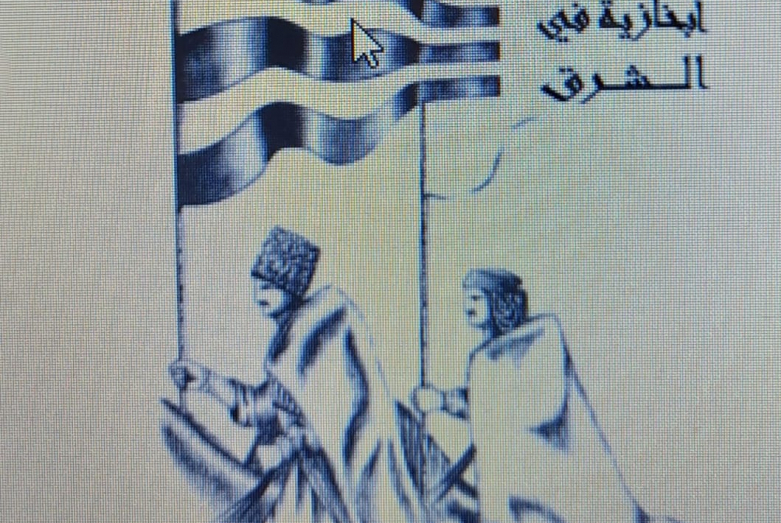
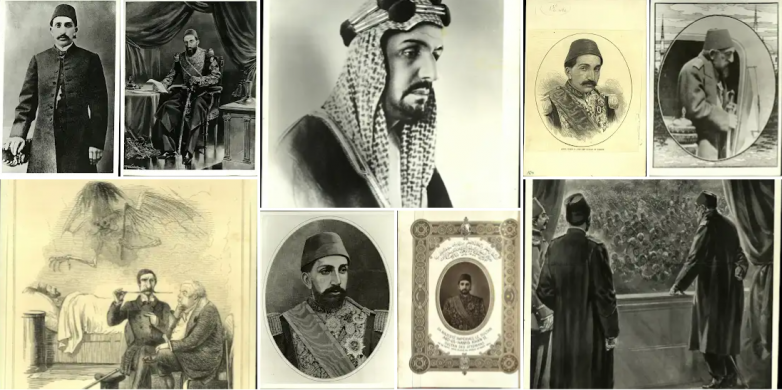
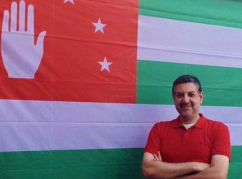
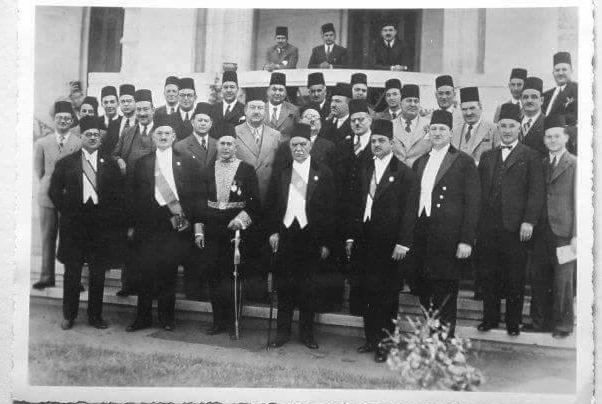
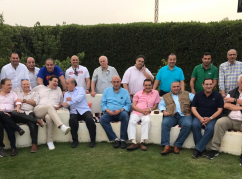
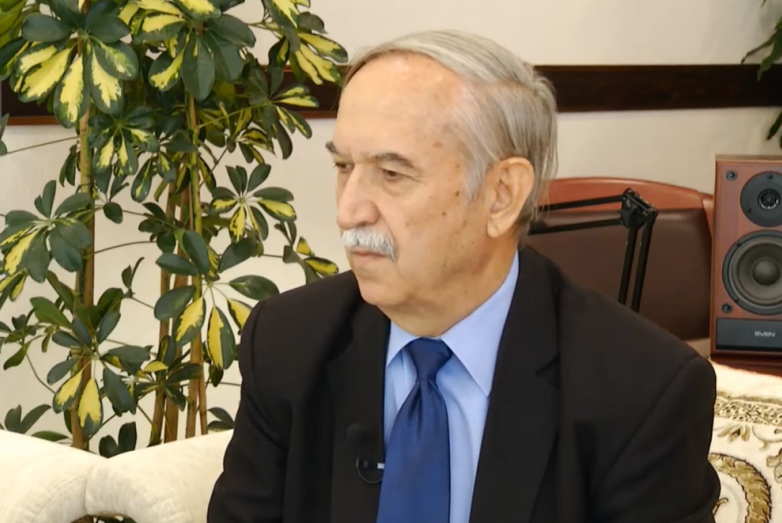
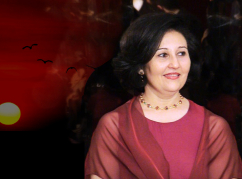
to login or register.